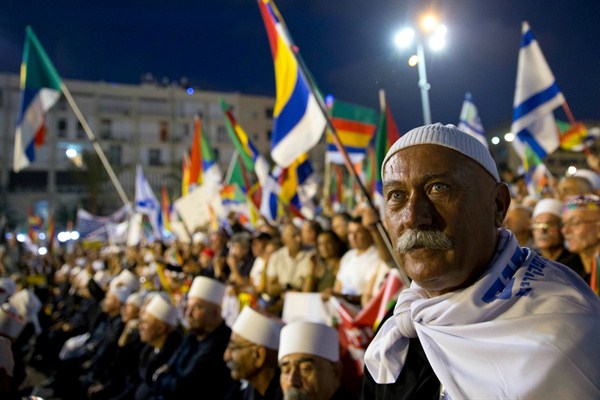YARKA, Israel—When soldiers from this small community in Israel’s lush Galilee region are killed in combat, Walid Mula turns up with advice and guidance. The affable 49-year-old is the director of a support group for bereaved families, and it falls to him to make hours-long house calls. Over sweet tea and snacks, he talks grieving relatives through the logistics of burying the dead, including the role of the Israeli state in financing funerals and memorial ceremonies.
Yarka is a community made up of around 1,000 members of the Arab-Israeli Druze minority. The Druze in Israel total 140,000, or around 2 percent of the national population. As of 2017, 421 Druze had died in Israel’s many wars, either as soldiers or as civilian casualties in terror attacks, according to Keren Kayementh l’Israel, the quasi-governmental Israeli parks organization that also organizes an annual run in northern Israel to commemorate fallen Druze soldiers.
In death, Druze soldiers, like soldiers from any minority group in Israel, are entitled to the same rights as their Jewish counterparts, Mula explains. This includes money for funeral costs; monthly, indefinite remunerations for widows; and additional assistance for mental health treatment plans for relatives of the deceased. The support, Mula says, is an appropriate sign of appreciation of the sacrifice the soldiers and their families have made for the country.

